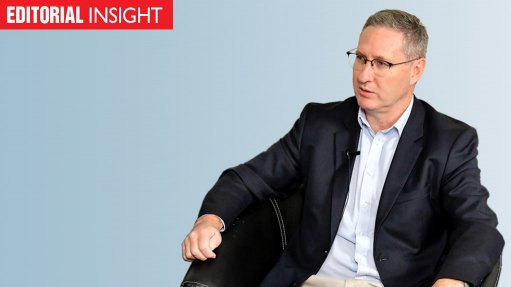
Have a listen to this for an energy roadmap: “We are a relatively small country located at the end of the world, but this moment calls us all to be ambitious and that’s exactly what we are trying to do. It’s what we did when we launched our Energy Efficiency Act. It’s what we did when we launched our National Green Hydrogen Strategy last year, aiming to be one of the largest and cheapest exporters by 2030. It’s what we did when we committed to phase out all our coal-fired power plants by 2040. It’s what we did when we pledged to achieve carbon neutrality by 2050.”
Even an inattentive observer of this country’s energy policy trajectory will know for certain that this is not a statement from a South African Minister. This, despite the fact that we too are relatively small, an end-of-hemisphere destination and have the conditions, including an aged and failing coal fleet and impressive sun and wind, that could enable us to pursue an identical line of march.
Instead, it’s the voice of Chilian Energy Minister Juan Carlos Jobet.
Speaking during the recent International Energy Agency-COP26 Net Zero Summit, Jobet made it clear that Chile was synchronising its energy sector with a growing international commitment to respond to the scientific call for a ‘flattening of the climate curve’ so as to prevent average global temperatures from breaching the 1.5 °C threshold above preindustrial levels that could trigger a climate catastrophe.
With the US back in the fold, this global move to net zero is being actively promoted and supported by all of the world’s largest economies and, thus, places countries outside of the framework at genuine trade and investment risk.
South Africa and other developing countries are, of course, absolutely right to demand that the principle of common but differentiated responsibilities be strictly applied when tackling both the climate crisis and facilitating the transition to climate resilience. In other words, securing binding commitments from industrialised countries, which bear overwhelming responsibility for the crisis, to contribute disproportionately to funding the mitigation and adaptation investments that will be required.
Nevertheless, a failure to recognise the historic economic opportunity presented by this shift to resilience poses possibly an even larger risk. This is because the response is increasingly global, cross sectoral and synchronised, which means that finance will dry up for fossil-fuel projects, while demand for investments that carry minimal stranded-asset risk will surge – investments in areas such as wind, solar, battery storage, green hydrogen and electric vehicles, as well as the nonfossil commodities required to build these solutions.
By virtue of its natural resources, South Africa is well placed to secure a disproportionate share of that investment, some of which can be used to cushion those workers, communities and small firms that are currently inextricably tied to coal. To do so, however, requires the sort of framework outlined by Jobet, rather than the muddled thinking and mixed messages currently emanating from Pretoria.